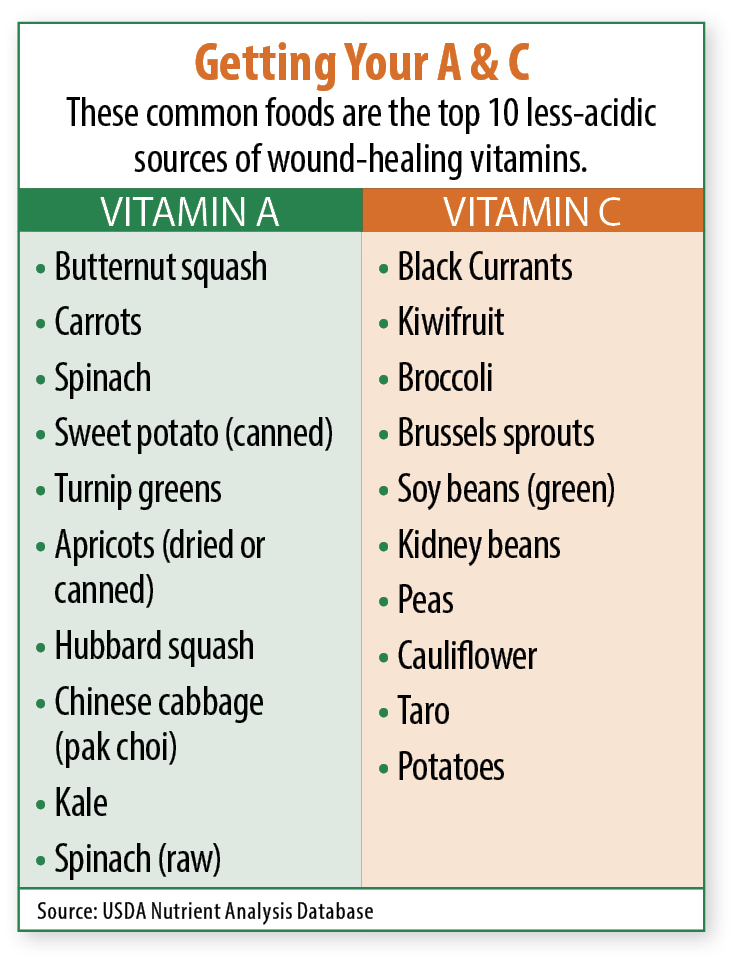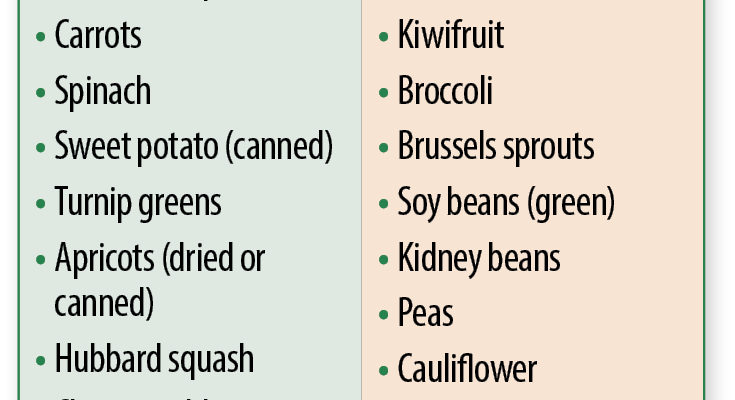Eating to Fight Peptic Ulcers
 People used to say stomach ulcers were caused by too much stress or spicy food, and the best thing to do when the pain flared up was to drink a nice big glass of milk. It turns out everything about that statement was wrong.
People used to say stomach ulcers were caused by too much stress or spicy food, and the best thing to do when the pain flared up was to drink a nice big glass of milk. It turns out everything about that statement was wrong.
What They Are. Peptic ulcers are open sores that develop on the inside lining of the stomach and the upper portion of the small intestine. They typically cause burning stomach pain, especially when the stomach is empty. They also may cause bloating, belching, heartburn, nausea, or intolerance to fatty foods. Occasionally, ulcers can cause severe symptoms, like blood in vomit or stools, or trouble breathing, and can lead to gastric can-cer.
Since 1982, when scientists discovered that many peptic ulcers are caused by a bacterium called H. pylori, antibiotics, along with medicines that decrease stomach acid, have been the main treatment. Ul-cers also can be caused by over-the-counter pain medications, including aspirin, ibuprofen (like Motrin and Advil), and naproxen sodium (like Aleve), but not acetaminophen (Tylenol). Smoking and stress can make ulcers worse.
What to Eat. That cup of milk may feel good at first, but then it may cause an increase in stomach acid that makes stomach pain worse. But there are foods that can help ulcers get better. In general, experts recommend vitamin-rich fruits, vegetables, and whole grains to give your body the nutrients it needs to heal. Foods with lots of vitamins A and C may be particularly helpful (see “Getting Your A & C”). If the acid in vitamin C-rich foods, like citrus fruits and tomatoes, make stomach pain worse, there are lots of other options.
What May Help. For ulcers caused by H. pylori, a 2015 review in the journal Nutrition Research explored which foods help, and which don’t. The following foods and extracts are the most promising choices to help fight H. pylori:
► Probiotics in yogurt, the fermented milk product kefir, and commercial probiotic products may help standard therapy work better and could lessen treatment side effects (look for Lactobacillus or Saccharomyces boulardii).
► Broccoli sprouts contain isothiocyanate sulforaphane, a phytochemical that kills H. pylori.
► Cabbage juice is a traditional remedy, and has been found to help stomach ulcers in gerbils.
► Moringa leaves have chemicals with strong antibacterial activity.
► Okra fights H. plylori, and may protect against intestinal ulcers.
► Fruits and fruit juices not only have vitamins that help healing, many also have anti-bacterial effects. Studies using cranberry juice had good outcomes, but blueberries, raspberries, strawberries, pomegranates, and apples may be helpful as well.
► Fish oil shows anti-H. pylori activity in humans, and evening primrose oil, garlic oil and blackcurrant seed oil may be helpful, too.
► Essential oils extracted from some herbs have antimicrobial, antioxidant, anti-inflammatory and immune-stimulating activity. Lemongrass essential oil fights H. pylori, and a combination of pepper-mint oil and caraway oil can reduce symptoms. Carrot seed, clove, manuka, and lemon oils may help as well.
► Spice extracts from cinnamon, rosemary, turmeric, finger root, nutmeg, ginger, and licorice all inhibit H. pylori growth.
► Green tea extract may fight the bacteria and the tissue damage it causes.
What May Not Help. Research is finding these popular remedies are not looking so promising.
► Honey kills H. pylori in the lab, but not in the stomach, where it’s too diluted by stomach acid to work.
► Garlic fights H. pylori in the lab, but studies in humans haven’t been encouraging.
Along with stress and tobacco use, these foods can irritate your ulcers or make them worse:
► Alcohol is known to increase risk of peptic ulcers and slow healing of existing ulcers.
► Milk and dairy products can increase stomach acid and make pain worse.
► Spicy foods can be painful for people with ulcers.
► Acidic foods like citrus and tomatoes may be painful to eat.
Bottom Line. If you have a peptic ulcer, follow your doctor’s treatment advice, minimize stress, avoid alcohol and tobacco products, stay away from spicy or acidic foods and milk if they cause your pain to flare, be sure to eat a nourishing diet with plenty of foods rich in vitamins C and A, and, if you’re di-agnosed with H. pylori, consider adding some of the promising bacteria-fighting foods above.
The post Eating to Fight Peptic Ulcers appeared first on University Health News.
Read Original Article: Eating to Fight Peptic Ulcers »
Powered by WPeMatico


